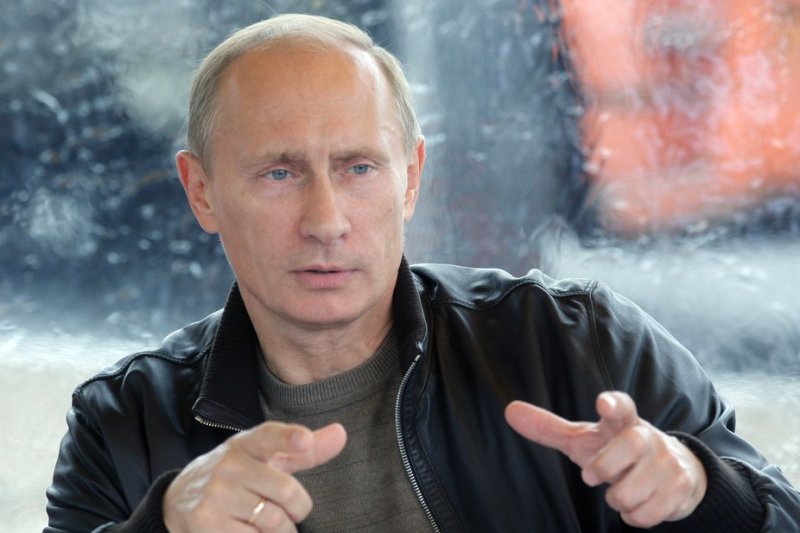Russian President Vladimir Putin is best served by putting weight on a move to extend a production cut agreement led by OPEC, a report from the Royal Bank of Canada found. Photo courtesy of Kremlin Press office
March 22 (UPI) -- Russia is likely to play along with what's expected to be another six months of OPEC production cuts despite lackluster compliance, a new report finds.
Members of the five-member committee monitoring a managed production decline agreement from the Organization of Petroleum Exporting Countries meet during the weekend in Kuwait to consider the durability of the deal.
The monitoring team counts Russia as a member. Russia is among the parties contributing to the agreement and is expected to contribute most to production declines from producers outside OPEC.
Russia's contribution is vital to the arrangement, though the Kremlin offered mixed support for the agreement last year after publicly stating in 2015 that coordinating with OPEC was an unsavory proposal, according to the Royal Bank of Canada.
The head of Lukoil, Russia's No. 2 oil producer, said last week it was "reasonable" to extend the production deal for another six months. Russia's overall compliance, however, has come into question as it managed to cut only 160,000 barrels per day, roughly half its pledged decline.
In a report on the weekend meeting of the compliance committee, the Royal Bank of Canada said it expected Russia would continue its cooperation with OPEC.
"We believe that [President Vladimir] Putin's interests will be ill-served by another price plunge," the report read. "Hence, we believe that Moscow will ultimately be in the continuation camp."
Dmitry Peskov, a spokesman for the Russian president, told reporters in January, the first full month for the agreement, that compliance was firm. Russia, he said, is "meeting all points" of the agreement.
OPEC's agreement helped establish a narrow trading band for crude oil at around $55 per barrel for much of this year. Supply-side pressures from U.S. oil production erased some of the gains this year and Brent crude oil early Wednesday was trading near $50 per barrel.
Russian Economic Development Minister Maxim Oreshkin said the resiliency of U.S. shale to lower crude oil prices was putting a ceiling on the price of oil. That could make a strong case for parties to the OPEC agreement to extend the terms of the deal.
The terms of the agreement, signed in November and enacted in January, said the deal could be extended for another six months to take into account prevailing market conditions.















